“Learn wisdom from the pupil of the eye that looks upon all things and yet to self is blind.” -Persian Poet
“There is nothing more frightening than ignorance in action.” -Goethe
(Both notes written by Malcolm X on scraps of paper found after his death.)
“People don’t realize how a man’s whole life can be changed by one book. (400)”-Malcolm X
My goal for this post is to convince you, the reader, to read Malcolm X’s autobiography (if you haven’t already). We’re living in a divided nation fraught with polarizing opinions and hatred. By learning about the life of a man who was labeled a terrorist, who suffered through oppression and distortion by the elite and his own nation of Islam, we can hopefully gain more empathy and inspiration.
My memory of Malcolm X, in my public high school history class, is in comparison to Dr. Martin Luther King Jr.
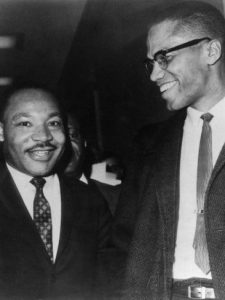
When we learned about the Civil Rights Moment there were pages dedicated to Dr. King, his marches, his sit-ins, his Christian humility, and his pacifist approach. Malcolm X only had a one paragraph beneath a picture of him shouting, and I distinctly remember him being labeled as a violent radical, a dangerous Muslim, a preacher of hatred towards the white man. How fitting that his autobiography would end with this:
“When I am dead – I say it that way because from the things I know, I do not expect to live long enough to read this book in its finished form – I want you to just watch and see if I’m not right in what I say – that the white man, in his press, is going to identify me with “hate”…You watch, I will be labeled as an “irresponsible” black man. (389).”
Not only was Malcolm X assassinated a few months before the book was published, but he never preached unprovoked violence towards white people. He preached separation and self-defense. Today, much of our country still believes that Muslims are violent radicals. This has to change.
Before delving into Malcolm X’s life, I want to tangentially discuss a philosophical conundrum that has bothered me for about a decade: The power of outward circumstances vs. the power of internal will. How much are “we” controlled by what happens around us: our families, our communities, and our country’s newspapers? Many thinkers today favor circumstance over internal will. I’ve read all of Malcolm Gladwell’s books (they’re all great, I recommend them all), and they lean towards this “circumstance” bias. His best book, Outliers, uses the analogy of a tall tree in a forest. How fortunate that the tree, as it grew to one day be tall, wasn’t blocked by other trees from receiving sunlight? How fortunate that some animals didn’t come along when the tree was young and damage its growth? Gladwell tells the story of how Bill Gates became a leader in developing computers. Bill Gates grew up near the Computer Center Corporation (CCC), and would sneak out of his house at night to practice and learn on a computer.
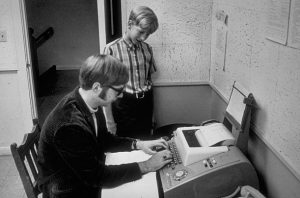
How lucky that Bill had early access to the world’s cutting edge computer system at a young age? How lucky that Bill came from a family that encouraged learning and competition? Yes, Bill was lucky to live near this opportunity and to have grown up in a stable home, but what Gladwell doesn’t focus on is that Bill still woke up in the middle of the night to learn and take advantage of this computer. Bill still pursued his computer obsession, despite his family pushing for him to become a lawyer. Similarly, as I discuss Malcolm X’s life, I want the reader to keep in mind how easy it would have been for Malcolm to throw up his at hands at any point and say, “I’m done. This wretched life isn’t worthy living.” Yes, circumstances pushed him in various, dark directions: he became a drug dealer and was deeply involved in NYC’s underworld, but through it all he maintained a driving energy and a will to live and flourish. He had a powerful internal will. Despite outward circumstances attacking him again and again, he rose to become one of humanity’s most influential leaders, whose voice will echo for centuries, while all the petty, racist bastards who attempted to bring him down at every stage in his life are by now anonymous ashes and dust.
*
Malcolm’s father was killed by a group of white men, most likely the K.K.K., when Malcolm was six years old.
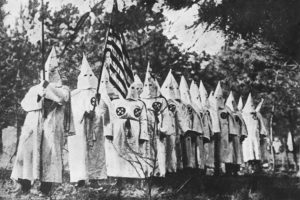
Malcolm was his father’s favorite child. Malcolm remembered the funeral:
“And I remember that during the service a big black fly came down and landed on my father’s face, and Wilfred sprang up from his chair and he shooed the fly away, and he came groping back to his chair – there were folding chairs for us to sit on – and the tears were streaming down his face. When we went by the casket, I remember that I thought that it looked as if my father’s strong black face had been dusted with flour, and I wished they hadn’t put on such a lot of it. (11)”
Early on, he was acquainted with cruelty and mortality.
At the age of 13, Malcolm’s mother was admitted to a mental institution:
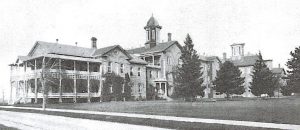
“I truly believed that if ever a state social agency destroyed a family, it destroyed ours. We wanted and tried to stay together. Our home didn’t have to be destroyed. But the Welfare, the courts, and their doctor, gave us the one-two-three punch. And ours was not the only case of this kind. (22)”
Malcolm developed a distrust of state institutions and realized that he was alone in this world.
Malcolm went to live with a kindly condescending foster family, the Swerlins.
“What I am trying to say is that it just never dawned upon them that I could understand, that I wasn’t a pet, but a human being. They didn’t give me credit for having the same sensitivity, intellect, and understanding that they would have been ready and willing to recognize in a white boy in my position. But it has historically been the case with white people, in their regard for black people, that even though we might be with them, we weren’t considered of them. Even though they appeared to have opened the door, it was closed. Thus they never did really see me. (28)”
Not only was Malcolm alone, but he would never be seen as an equal in a white-dominated world.
Malcolm had an English teacher named Mr. Ostrowski who liked him and treated him comparatively well. Mr. Ostrowski was a “natural born advisor.” He asked Malcolm what he planned to do in life. “Well, sir, I’ve been thinking I’d like to be a lawyer.”
“Malcolm, one of life’s first needs is for us to be realistic. Don’t misunderstand me, now. We all here like you, you know that. But you’ve got to be realistic about being a nigger. A lawyer – that’s no realistic goal for a nigger. You need to think about something you can be. You’re good with your hands – making things. Everybody admires your carpentry shop work. Why don’t you plan on carpentry?” Malcolm brooded over this advice for days:
“What made it really begin to disturb me was Mr. Ostrowski’s advice to others in in my class – all of them white…those who wanted to strike out on their own, to try something new, he had encouraged…yet nearly none of them had earned marks equal to mine…it was then that I began to change – inside. I drew away from white people. (38)”
“Whatever I have done since then, I have driven myself to become a success at it. I’ve often thought that if Mr. Ostrowski had encouraged me to become a lawyer, I would today probably be among some city’s professional black bourgeoisie, sipping cocktails and palming myself off as a community spokesman for and leader of the suffering black masses, while my primary concern would be to grab a few more crumbs from the groaning board of the two-faced whites with whom they’re begging to ‘intergrate’ (40).”
Malcolm’s beloved Aunt, Ella, was a strong-minded woman who lived in Boston. After the Mr. Ostrowski epiphany, Malcolm decided to leave his small town and move to Boston. He explored the city for months and saw a different, more diverse, and open world.
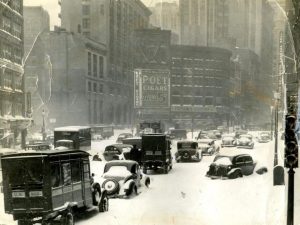
He wanted to find a job to surprise Ella. He was drawn by the sight of all the “cool-looking cats” in a poolroom. He met ‘Shorty,’ a shoe-shiner in the Roseland State Ballroom, who took him under his wing and said, “I’m going to school you to the happenings.”
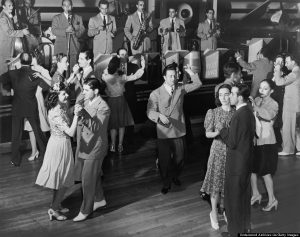
For years, Malcolm would work menial jobs and hustle: dishwasher (first job), shoe-shiner at the Roseland Ballroom (where Duke Ellington would play and Ella Fitzgerald would sing), waiter, railroad porter. He fell in love with New York City and moved there (after running afoul of the Florida Cracker who was assistant conductor on the railroad). Malcolm started working at a popular bar, Small’s Paradise, which was the “center of events” in Harlem. It was 1942 and Malcolm was 17.
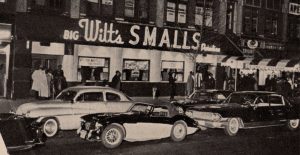
“Every day I listed raptly to customers who felt like talking, and it all added to my education. My ears soaked it up like sponges when one of them, in a rare burst of confidence, or a little beyond his usual number of drinks, would tell me inside things about the particular form of hustling that he pursed as a way of life. I was thus schooled well, by experts in such hustles as the numbers, pimping, con games of many kinds, peddling dope, and thievery of all sorts, including armed robbery (86).”
No matter where Malcolm was in his life, he was questioning, working, and learning.
Malcolm became friends with Sammy the Pimp and learned about women and prostitution.
“Those women would tell me anything. Funny little stories about the bedroom differences they saw between white and black men. The perversities!…The prostitutes had to make it their business to be students of men. They said that after most men passed their virile twenties, they went to bed mainly to satisfy their egos, and because a lot of women don’t understand it that way, they damage and wreck a man’s ego. No matter how little virility a man has to offer, prostitutes make him feel for a time that he is the greatest man in the world. That’s why these prostitutes had that morning rush of business. More wives could keep their husbands if they realized their greatest urge is to be men (95).”
But Malcolm’s personality was the type to take things all the way. His hustling became more aggressive, and one day at Small’s Paradise he fell right into the hands of a military spy (who he thought wanted a woman). Luckily, due to a previous clean record, Malcolm was not arrested, but he was barred from Small’s. Sammy and him began doing more business together and Malcolm went deeper into the underworld.
“In those days only three things scared me: jail, a job, and the Army (108).” One day, he was almost killed by West Indian Archie over a gambling mishap. He was chain-smoking four packs of cigarettes a day (“Tobacco is just as much an addiction as any narcotic” 142)), not sleeping, and running all over the city. Malcolm became the boss of a four-person-team specializing in armed robbery. He got caught.
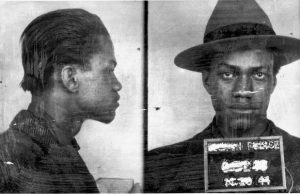
Despite the average burglary sentence for a first time offender being 2 years, Malcolm was sentenced to ten years in prison. The white women who he was working with received 1-5 years. In 1946, when Malcolm was not quite 21, when he hadn’t even started shaving yet, he was taken to Charlestown State Prison and would spend the next 7 years incarcerated.
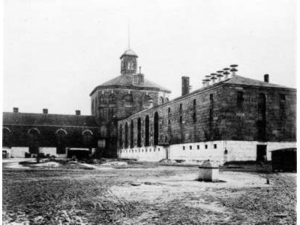
“Any person who claims to have deep feeling for other human beings should think a long, long time before he votes to have other men kept behind bars – caged. I am not saying there shouldn’t be prisons, but there shouldn’t be bars. Behind bars a man never reforms. He will never forget. He never will get completely over the memory of the bars (155).”
Malcolm hit rock bottom and was known in the prison as Satan. “As a ‘fish’ at Charlestown I was physically miserable and as evil-tempered as a snake, being suddenly without drugs. The cells didn’t have running water. The prison had been built in 1805 – in Napoleon’s day – and was even styled after the Bastille. In the dirty, cramped cell, I could lie on my cot and touch both walls. The toilet was a covered pail; I don’t care how strong you are, you can’t stand having to smell a whole cell row of defecation (155).”
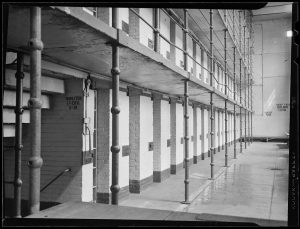
During the first year in prison Malcolm cursed guards, threw things out of his cell, balked in line, dropped trays in the dining hall, and refused to answer to his number – claiming he forgot it. “I preferred the solitary that this behavior brought me. I would pace for hours like a caged leopard, viciously cursing aloud to myself. And my favorite subjects were the Bible and God (156).”
But in 1947 Malcolm met a fellow inmate who made a positive impression on him. The man was named Bimbi. He was an old-time burglar who was gruff and gave talks on odd subjects.
“Out of the blue one day, Bimbi told me flatly, as was his way, that I had some brains, if I’d use them. I had wanted his friendship, but not that kind of advice. I might have cursed another convict, but nobody cursed Bimbi. He told me I should take advantage of the prison correspondence courses and the library (157).”
Over the next 7 years Malcolm would read and write like a fanatic: history, philosophy, fiction, everything he could get his hands on. “Let me tell you something: from then on until I left prison, in every free moment I had, if I was not reading in the library, I was reading on my bunk. You couldn’t have gotten me out of books with a wedge…months passed without my even thinking about being imprisoned. In fact, up to then, I never had been so truly free in my life (176).”
“I’ve never been one for inaction. Everything I’ve ever felt strongly about, I’ve done something about, I guess that’s why, unable to do anything else, I soon began reading and writing…(173).” He would copy the entire dictionary.
In 1948, after Malcolm had been transferred to Concord Prison, his brother Philbert, who was forever joining something, wrote him that he had discovered the “natural religion for the black man.” He belonged now, he said, to something called, “the Nation of Islam.” The religion would “get him out of prison.” “If you will take one step toward Allah – Allah will take two steps toward you (158-159).”
In addition to Malcolm’s intensive reading, he began a correspondence with Elijah Muhammad, the head of the Nation of Islam group in America. Elijah became a father figure to Malcolm and told him something which revolutionized his thinking:
The white man is the devil.
“I couldn’t make of it head, or tail, or middle. The white people I had known marched before my mind’s eye. From the start of my life. The state white people always in our house after the other whites I didn’t know had killed my father…the white people who kept calling my mother ‘crazy,’ to her face and before me and my brothers and sisters, until she finally was taken off by white people to the Kalamazoo asylum…the white judge and others who had split up the children…the Swerlins, the other whites around Mason…the white-only dances at the Roseland Ballroom…the judge who gave me ten years…the prisoners I’d known, the guards and the officials (164-165).”
Malcolm came to the conclusion that history had been “whitened” in the white man’s history books, and that the black man had been brainwashed for hundreds of years. He became a dedicated follower of Elijah Muhammad. In prison he became a teacher.
During the spring of 1952, Malcolm was released from prison. After taking a Turkish bath to wash off the prison taint, he bought three things that would become prized possessions and prepare him for what his life was to become:
“My eyeglasses to correct the astigmatism that I got from all the reading in prison…a suitcase, and a wrist watch. You won’t find anybody more time-conscious than I am. I live by my watch, keeping appointments. Even when I’m using my car, I drive by my watch, not my speedometer. Time is more important to me than distance (196).”
Until his death, Malcolm would travel constantly and preach the teachings of Islam and Elijah Muhammad. He would grow Elijah Muhammad’s organization from 400 members to 40,000. From speeches on street corners in Harlem to speeches at revered universities (Harvard, etc.), Malcolm funneled all his energy into spreading the word of Islam. He became Elijah Muhammad’s right hand man.
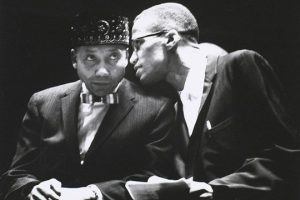
“’Brother Malcolm, I want you to become well known,’ Mr. Muhammad told me one day. ‘Because if you are well known, it will make me better known,’ he went on.
‘But Brother Malcolm, there is something you need to know. You will grow to be hated when you become well known. Because usually people get jealous of public figures.’
Nothing that Mr. Muhammad ever said to me was more prophetic (207).”
Elijah Muhammad and the nation of Islam would eventually betray Malcolm X. One of the reasons is that he became too famous. Another reason was that despite preaching fidelity, Elijah would have numerous relationships with his secretaries, and this information became public and damning. Malcolm couldn’t defend him anymore.
“What began to break my faith was that, try as I might, I couldn’t hide, I couldn’t evade, that Mr. Muhammad, instead of facing what he had done before his followers, as a human weakness or as a fulfillment of prophecy – which I sincerely believe Muslims would have understood, or at least they would have accepted – Mr. Muhammad had, instead, been willing to hide, to cover up what he had done.
That was my final blow (312).”
When jealously set in, the newspaper that Malcolm founded, Muhammad Speaks, wouldn’t print anything about Malcolm X.
In addition, Malcolm was questioning the belief that, “The white man is the devil.” When he was rising up in the nation Islam, an experience occurred that Malcolm would never forget. A little blond co-ed at a New England college was moved by Malcolm’s words. She must have caught the next plane behind the one that Malcolm took to New York. She found Malcolm in a Muslim restaurant in Harlem.
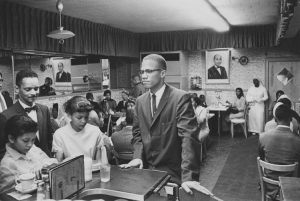
She demanded, to Malcolm’s face, ‘Don’t you believe there are any good white people?” Malcolm didn’t want to hurt his feelings, so he told her, “People’s deeds I believe in, Miss – not their words.’
‘What can I do?’ she exclaimed. He told her, ‘Nothing.’ She burst out crying, and ran out and up Lenox Avenue and caught a taxi (292).
Years later, Malcolm X would tell Gordon Parks, “Well, I’ve lived to regret that incident. In many parts of the African continent I saw white students helping black people. Something like that kills a lot of argument. I did many things as a Muslim that I’m sorry for now. I was a zombie then, like all Muslims – I was hypnotized, pointed in a direction and told to march. Well, I guess a man’s entitled to make a fool of himself if he’s ready to pay the cost. It cost me twelve years (436).”
While Malcolm was traveling the African continent, meeting presidents and important figures and visiting Mecca, he began changing his world-view. He had never experienced such kindness from whites. Meanwhile, back in America, the Nation of Islam was plotting his death.
“My pilgrimage broadened my scope. It blessed me with new insight…in the past, yes, I have made sweeping indictments of all white people. I never will be guilty of that again – as I know now that some white people are truly sincere, that some truly are capable of being brotherly toward a black man. The true Islam has shown me that a blanket indictment of all white people is as wrong as when whites make blanket indictments against blacks (369).” The nation of Islam did not agree with Malcolm’s broadening scope. Malcolm knew that the Nation of Islam were actively trying to kill him. His fame and philosophical changes would lead the Nation of Islam to murder him in cold blood on February 21, 1965, when Malcolm was 39 years old.
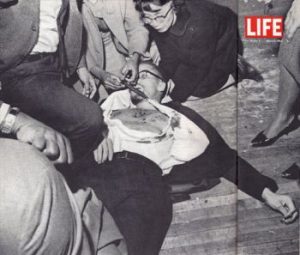
Elijah Muhammad told the annual Savior’s Day convention that “Malcolm X got just what he preached.” Martin Luther King said, “While we did not always see eye to eye on methods to solve the race problem, I always had a deep affection for Malcolm and felt that he had a great ability to put his finger on the existence and root of the problem. He was an eloquent spokesman for his point of view and no one can honestly doubt that Malcolm had a great concern for the problems we face as a race.”
*
Recently (January 28, 2017) I read articles about Malcolm X’s granddaughter who was arrested for animal cruelty and theft. Even today people are attempting to smear his reputation in subtle, insinuating ways. And in our nation’s climate of police brutality towards African Americans, this fucking Alt-Right group claiming white supremacy, and a ban on Muslims entering our country, I think it’s important to remind ourselves what Malcolm X really stood for. It’s important to know that he did not preach hate. It’s important to recognize his will to live and his belief that he could change the world:
As Alex Haley noted in the epilogue of this book, “I saw Malcolm X too many times exhilarated in after-lecture give-and-take with predominately white student bodies at colleges and universities to ever believe that he nurtured at his core any blanket white-hatred. ‘The young whites, and blacks, too, are the only hope that America has,’ he said to me once. ‘The rest of us have always been living a lie’(407).”
Malcolm X presented a challenge to white people. And there’s one, final scene I want to conclude this essay with that stayed with me months after finishing the book:
Malcolm X was driving his car along the freeway when he stopped at a red light. Another car pulled alongside. A white woman was driving and on the passenger’s side, a few feet away from Malcolm, was a white man. ‘Malcolm X!’ he shouted. The white man stuck his hand out the car, while grinning, and asked, ‘Do you mind shaking hands with a white man?’ Just as the traffic light turned green, Malcolm turned and said, ‘I don’t mind shaking hands with human beings. Are you one?’
Subscribe below. Thank you.

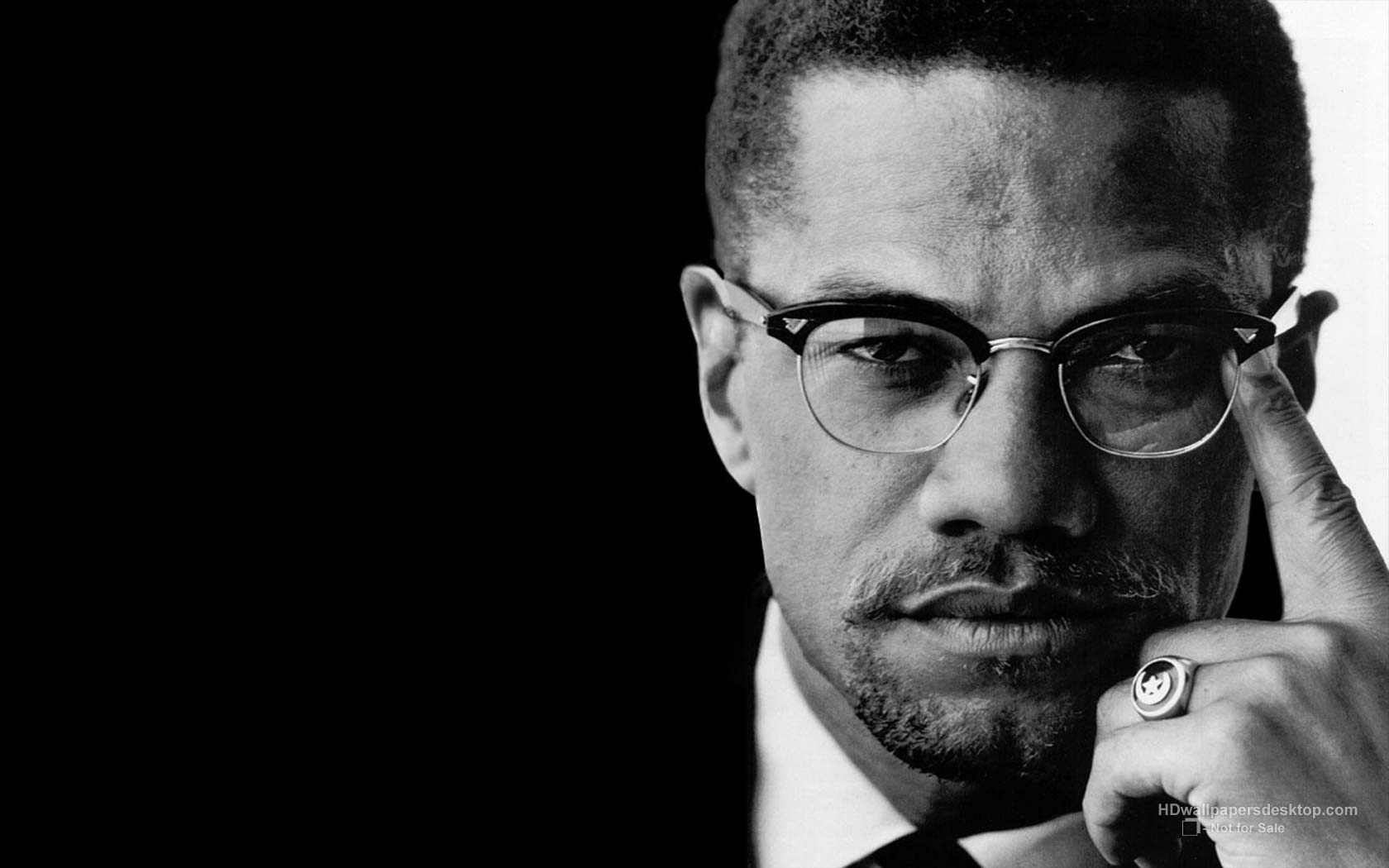
Yup.
Excellent work. He was a great man. It is a fact that he was a great man, and he was also seen as a threat to the white world order for stating the truth. How can you tell he was great? Because every great man has been faced with critiscm and propaganda lies by the white man.
Thank you Aisha. Very well said.